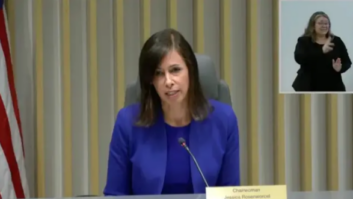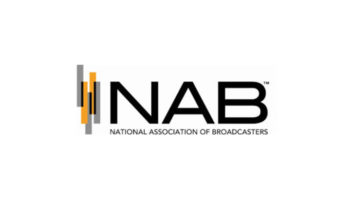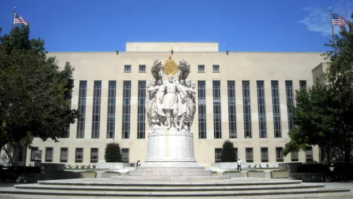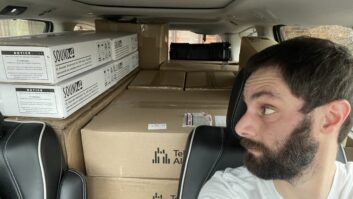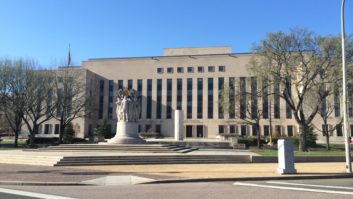Radio World’s “Guest Commentaries” section provides a platform for industry thought leaders and other readers to share their perspective on radio news, technological trends and more. If you’d like to contribute a commentary, or reply to an already published piece, send a submission to radioworld@futurenet.com.
The author joined Fletcher, Heald & Hildreth in 1992 and became a member of the firm in 1997. This commentary originally appeared on the FHH CommLawBlog.
Earlier this year, new FCC rules went into effect requiring radio and television stations to broadcast Sponsorship ID disclosures for programming provided by foreign governmental entities. This month, the federal Court of Appeals for the D.C. Circuit struck down one part of those requirements: the requirement for broadcasters to independently confirm the sponsor’s status by consulting with two federal government databases.
The remaining requirements were not addressed or struck down by the court, and remain in effect.
The new rules require broadcasters to undertake a five-step process whenever they lease airtime to a sponsor:
- tell the sponsor about the foreign sponsorship ID disclosure requirement;
- ask the sponsor whether it is a foreign governmental entity or an agent of one;
- ask the sponsor whether anyone further back in the production or distribution chain is a foreign governmental entity or an agent of one;
- independently confirm the sponsor’s status, at both the time of the lease of time on the station(s) and the time of any renewal, by checking the Department of Justice’s Foreign Agents Registration Act website and the FCC’s U.S.-based foreign media outlets reports; and
- document those inquiries and investigations, in case of a future inquiry from the FCC.
The National Association of Broadcasters appealed the fourth requirement to independently confirm the sponsor’s status, arguing that particular requirement went way beyond the FCC’s statutory authority under Section 317(c) of the Communications Act.
[Read More Guest Commentaries Here]
Section 317(c) provides that “licensee of each radio station shall exercise reasonable diligence to obtain from its employees, and from other persons with whom it deals directly in connection with any program or program matter for broadcast, information to enable such licensee to make” sponsorship ID announcements.
The court agreed with the NAB, finding that Section 317(c) of the Act authorizes only a “narrow duty of inquiry” for broadcasters. The court noted that in Section 317 “the ‘to obtain’ clause means broadcasters do not need to exercise diligence in general. And the two ‘from’ clauses mean broadcasters do not need to make a diligent effort to obtain the information from any possible source. They simply need to be diligent in their efforts ‘to obtain’ the necessary information ‘from’ employees and sponsors.” In contrast, the court noted that the contested requirement “instead tells a broadcaster to seek information from two federal sources in addition to the two sources that the statute prescribes. That is not the law that Congress wrote.”
So, what now?
The court struck down the fourth requirement, and did not remand it to the FCC to revise that requirement. It thus appears that the fourth requirement is no longer enforceable by the FCC, and that stations are no longer required to fulfill the fourth requirement.
Of course, the FCC may come back and try to enact some new additional requirement similar to the fourth requirement, but we will have to wait and see on that.
In the meantime, though, stations do have to comply with the remaining requirements (items 1-3 and 5, above). Here is a link to our prior CommLawBlog article on how to do that. And in doing so, stations should follow the mandate of Section 317(c) to exercise “reasonable diligence” in making inquiries not only to program sponsors, but also to station staff that have been in communications with the sponsor, or who may have knowledge about the sponsor.
